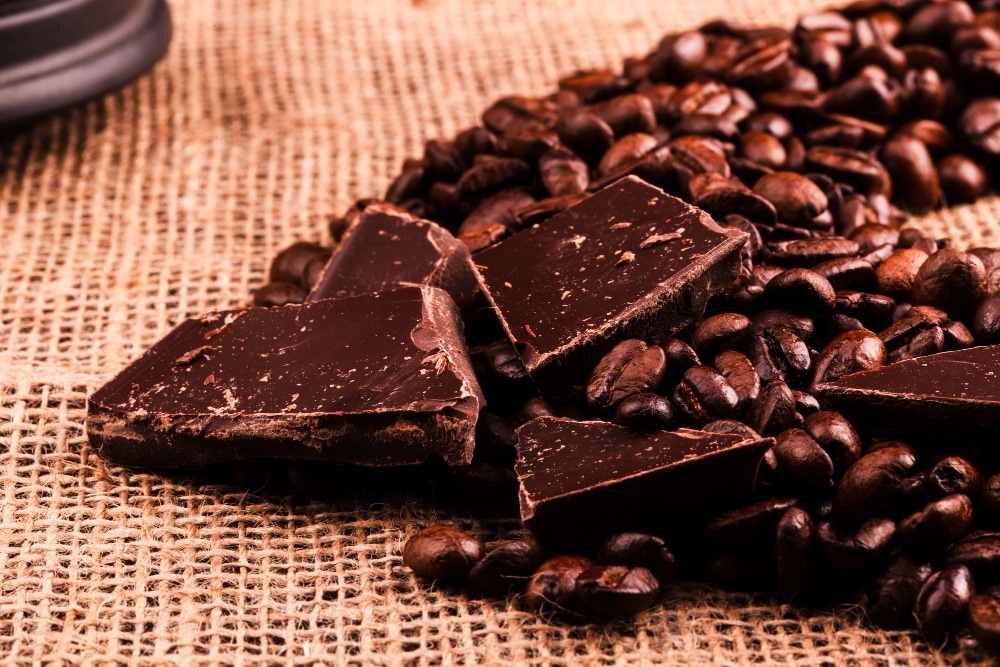Fact Check: Is dark chocolate truly a medicine? Here’s what you need to know
While dark chocolate can serve as a form of medicine thanks to its antioxidants, moderation is crucial due to its calorie, sugar, and potential heavy metal content
Author
Author
- admin / 5 months

- 0
- 5 min read

Author
CLAIM:
Dark chocolate is a medicine. It gives us resilience, strength and also improves brain health.
FACT:
Eating dark chocolate (70% cocoa or above) in moderation may support heart, skin, and short-term brain health, but doctors warn it is not a medicine and overconsumption can cause risks due to high sugar, calories, caffeine, fat, and heavy metals.
Dark chocolate has become more than just a treat—it’s a trending ‘superfood’. Articles and social media posts constantly buzz about its benefits, whether it’s for easing period cramps, a quick office snack, or a handy travel buddy.
In a viral reel, health educator Prashant Desai, who has 1.4 million followers on Instagram, claims, “Dark chocolate is a medicine. Yes, friends, science has approved that dark chocolate, 70% or above, contains cocoa, which is loaded with polyphenols and flavonoids.”
He explains that cacao beans grow in harsh environments, developing resilience and strength, which he claims are transferred to us when we consume them.
Are the claims true?
If you buy quality dark chocolate with a high cocoa content (70% and above), it can be quite nutritious. A 50-gram bar typically contains around 5.5 grams of fibre, 33% of the daily value (DV) of iron, 28% of magnesium, 98% of copper, and 43% of manganese. It also has a healthy fatty acid profile, with oleic acid (a heart-healthy fat), stearic acid (neutral for cholesterol), and some palmitic acid (which can raise cholesterol). However, that same bar could also deliver about 300 calories and 12 grams of sugar—so moderation is key.
Dark chocolate is rich in biologically active compounds such as polyphenols, flavonoids, catechins, and procyanidins, all of which act as antioxidants. These compounds help the body fight oxidative stress, which can damage cells and increase the risk of chronic diseases.
Studies suggest that flavonoids in dark chocolate can stimulate the endothelium (the lining of blood vessels) to produce nitric oxide, which helps relax arteries, improving blood flow and potentially lowering blood pressure. While some studies show positive effects, findings are mixed. For example, a 2019 study in women found that eating 85% dark chocolate slightly raised blood pressure two hours after consumption—but during periods of stress, it actually lowered blood pressure and heart rate. More research is needed to clarify these effects.

Dark chocolate may also improve cardiovascular health. A 2021 review of eight studies found that consuming dark chocolate helped decrease LDL (bad) cholesterol and fasting blood glucose levels. Other research shows that the antioxidants in cocoa protect LDL cholesterol from oxidation, a process that can damage arteries and increase heart disease risk. A 2017 review reported that eating chocolate three times per week lowered the risk of cardiovascular disease by 9%, while a 2018 review suggested that consuming around 45 grams per week could reduce the risk by 11%. However, eating more than 100 grams per week did not show additional benefits.
The potential benefits extend beyond the heart. A 2021 review suggested that flavanols in dark chocolate could improve blood flow to the skin, increase hydration, and even raise resistance to UV damage.
There is also growing interest in dark chocolate’s role in brain health. Studies indicate that cocoa flavonoids may boost blood flow to the brain, which could improve attention, memory, and learning in young adults. Research also suggests possible benefits for older adults with mild cognitive impairment, potentially slowing progression toward dementia, though evidence remains limited.
Additionally, dark chocolate contains small amounts of caffeine and theobromine, stimulants that may provide short-term improvements in alertness and mental function.
In fact, a 2020 study on 98 healthy young adults (aged 18–24 years) concluded that “70% cocoa dark chocolate consumption can benefit verbal episodic memory two hours post consumption in healthy young adults relative to a white chocolate control. These findings support the notion that everyday available portions (35 g) of dark chocolate can confer benefits to the brain in healthy consumers.”
Dr Rajeshwari Panda, Head of the Dietetics Department at Medicover Hospital, Kharghar, Navi Mumbai, cautions against exaggerating the claims around dark chocolate. “Calling dark chocolate a medicine—I will disagree. It’s not a medicine, but yes, it’s a nutrient-dense treat, rich in flavonoids and antioxidants, which can support heart and brain health,” she explained.
According to her, moderation is the key. “It does benefit your heart health and brain health, but only if taken in moderation. Dark chocolate helps improve blood flow, boosts mood, and can support memory and cognition over time. But it is also high in calories, sugar, caffeine, fat, and even heavy metals. That’s why overconsumption can be risky,” she said.
She further added that only chocolates with a cocoa content above 70% are beneficial, but even then, the quantity must be limited. “Around 30 to 60 grams—that is, one or two small pieces a day, or 100 to 200 grams per week—is still a reasonable amount. Beyond that, the risks outweigh the benefits. For pregnant women and children, it’s best avoided altogether due to the concern of heavy metals.”
On whether dark chocolate can really improve brain health, Dr Panda was cautious. “No, there is no long-term, proven benefit for brain health. The advantages are short-term, such as boosting mood and alertness, thanks to flavonoids and compounds like caffeine and theobromine. But it is unproven as a long-term solution,” she clarified.
She also stressed the importance of looking at diet holistically rather than isolating one “superfood.” “No healthcare professional will recommend a single food item as a cure for brain or heart health. What you eat throughout the day matters far more than one bar of dark chocolate. Food combinations, balance, and overall nutrition make the real difference.”
Also read: FACT-CHECK: Homeopathy, acupuncture or medicine?










